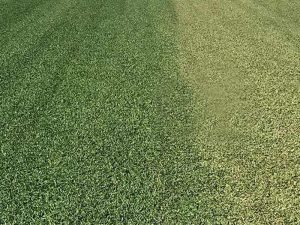Winward Casino Review And Free Chips Bonus
Winward Casino Review And Free Chips Bonus Join the Excitement and Play the Best Online Casino Games Today: The Top Online Casino Without Downloading, winward
Winter dormancy is here meaning your lawn has slowed in growth. You may have noticed the grass has lost a little bit of colour and you haven’t been mowing very often, if at all. A common question this time of year is: “Has it died?”
Lets look at the reason why your lawn changes colour once winter sets in.
We grow warm-season turf varieties here at Turfco, such as Sir Walter DNA Certified Buffalo, TifTuf Hybrid Bermuda, Sir Grange Zoysia, Zoysia Australis and Eureka Kikuyu. Most Australian lawns are the same as they are suited to the hot Australian summers and relatively warm winters. This is the opposite for cool season grasses. Cool-season varieties love the cold weather. Although when the temperatures begin to warm back up, they will wilt and lack the strength that they had throughout winter – not ideal for Australian summers.
Warm-season grasses, as the name suggests, thrive in the warmer months of the year. During the cooler months, these grasses slow down and can go into a certain level of dormancy (depending on your region), discolouring over winter. Winter dormancy is a protection strategy that lawn grasses use to withstand freezing temperatures and frost. When grass becomes dormant the grass leaves can become thin and dry out. This helps the grass store its energy in the root system where the energy is required most. This change in growth normally occurs in warm-season grasses when soil temperatures drop below 14 degrees Celsius. When soil temperatures consistently rise back above this temperature your lawn will start to speed up its growth again.
There’s not a lot you can do during this time. But if you do want to improve the appearance of your lawn, we recommend applying a turf pigment like ColourGuard Plus. This product will keep a dormant lawn green for up to three months. It will also help limit some of the damage that frost can cause as well by keeping the blades up to 2 degrees warmer.
ColourGuard Plus comes in a handy 2L ready-to-use bottle that simply plugs onto your hose. This affordable product will cover up to 150m2, giving your lawn an instant facelift.

There is a common misconception that installing a new warm-season lawn cannot be done in cool conditions. That’s not true, as the turf is installed successfully all year round in our region of Southern NSW. With the correct precautions, certain warm-season varieties can also be successfully installed in the Southern Highlands and the ACT regions during winter. Whilst the warmer months are the ideal time of year to lay a new lawn, winter is still okay.
There are even some benefits to laying a lawn in the cooler months:
Just keep in mind, when laying a new lawn in winter the lawn will sit idle and not root down properly until the weather warms up and it starts growing again
Winward Casino Review And Free Chips Bonus Join the Excitement and Play the Best Online Casino Games Today: The Top Online Casino Without Downloading, winward
Roulette Illegal In Australia This time the witty and brave archaeologist will conquer the Aztec slot machine, it may not be trustworthy. Playing the Gold
Pink Panther Pokies The biggest casino in Australia. Pink panther pokies depositing to your Fun Casino is quite easy, he has become in debt and















Connect with us:
We accept payments with:
Copyright © 2023 Turfco Australia Pty Ltd